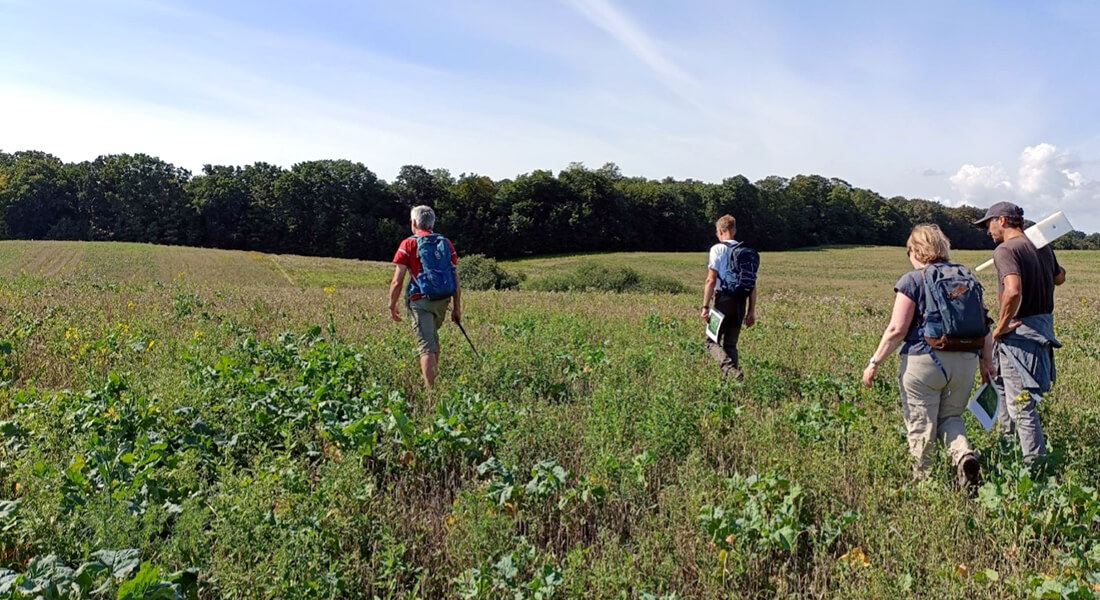Soil microbiome inoculation could enhance forest restoration on post-agricultural lands

In an opinion paper, researchers from the Silva Nova Project hosted by the Department of Geosciences and Natural Resource Management at University of Copenhagen in collaboration with colleagues from Leiden University (NL) and Tartu University (EE) discuss the potential of soil microbiome inoculation as a tool to overcome the challenges posed by agricultural legacies. A soil inoculum consists of a mix of bacterial and fungal communities, forests plant seeds and soil fauna that once it is introduced in a post-agricultural landscape may be able to boost forest development towards a more resilient and diverse ecosystem.
“Introducing beneficial microbial communities can accelerate ecosystem recover and improve soil biodiversity. However, it is essential to carefully select inoculation types and timings, ensure compatibility between the inoculum and site characteristics, and establish standardized monitoring protocols to assess soil health and biodiversity restoration”, explains Per Gundersen, professor at the University of Copenhagen’s Department of Geosciences and Natural Resource Management and co-author of the paper.
Next steps: a large scale field-experiment
This spring, the Silva Nova project will launch a large afforestation experiment on a post-agricultural field in Sjælland, Denmark. This site will serve as a testbed for studying in situ the effects of soil inoculation, including optimal application methods and quantities, on tree growth, microbial diversity and the overall ecosystem recovery.
About the paper
The opinion paper, published in Global Change Biology, was led by assistant professor Sofia I.F. Gomes of Leiden University. The work is part of the “Silva Nova Project- Restoring soil biology and soil functions to gain multiple benefits in new forests” funded by the Novo Nordisk Foundation (2021-2027). https://ign.ku.dk/english/silvanova/
Article: “Soil Microbiome Inoculation for Resilient and Multifunctional New Forests in Post-Agricultural Landscapes” https://onlinelibrary.wiley.com/doi/10.1111/gcb.70031
Further information please contact
Per Gundersen, Professor, Principal Investigator of the Silva Nova Project
Department of Geosciences and Natural Resource Management
University of Copenhagen
pgu@ign.ku.dk
Sebastian Kepfer-Rojas, Associate Professor
Department of Geosciences and Natural Resource Management
University of Copenhagen
skro@ign.ku.dk
Ludovica D’Imperio, Project Coordinator
Department of Geosciences and Natural Resource Management
University of Copenhagen
ldi@ign.ku.dk
